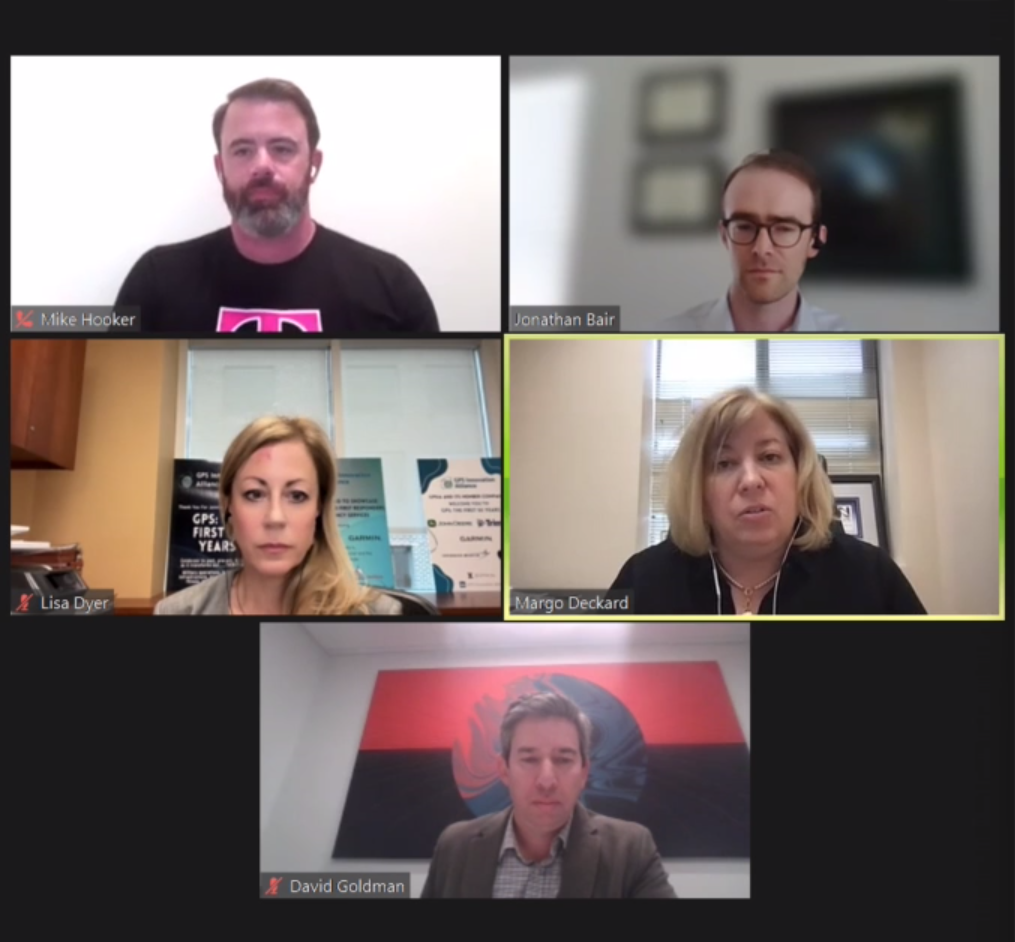
WASHINGTON, May 15, 2024 – The executive of a satellite provider expressed concern regarding satellites’ ability to connect users with emergency services following the Federal Communications Commission’s adoption of a framework granting satellites access to spectrum bands previously held by terrestrial providers.
The Supplemental Coverage from Space framework, adopted by the FCC on March 14, aims to cover dead zones across the United States via satellites, giving users emergency contact functions in geographically isolated areas. The FCC has issued a Further Notice of Proposed Rulemaking to allow for public comment on how best to handle 911 services under SCS.
Although positive of the framework overall, Margo Deckard, chief operating officer of satellite provider Lynk Global expressed reservation at a Tuesday webinar over the current capabilities of satellites to deliver adequate communication between users and emergency contacts.
Deckard, who sits on multiple emergency communications advisory boards, said there is “big concern” among officials that poor communication will exacerbate responders already operating under stretched resources. Deckard emphasized a need for satellites to deliver accurate location information and methods of ensuring valid 911 calls, in line with existing service provider requirements.
“[Emergency service providers] are looking towards the regulator and the industry to make sure that the 911 call requirements that they are used to being met are taken into consideration,” Deckard said.
Deckard encouraged a continual dialogue between the relevant stakeholders, including public safety officials, to ensure satellites can work harmoniously with responders.
Opportunities for life-saving potential from satellites
Deckard remained positive toward the potential good outcomes by ubiquitous wireless emergency coverage if done right.
“[The FCC is] really embracing it because of the life saving potential. So it’s up to industry… who’s taking advantage of the speed at which our regulators give us permission to operate.” Deckard said.
Other satellite and terrestrial providers have also raised concern over the potential interference issues caused by a hasty reallocation of spectrum.
Renee Roland, serving as special counsel to the FCC’s Public Safety and Homeland Security Bureau, joined the panel to lay out the FCCs plan to mitigate this potential for interference, as outlined within the proposal.
Satellites authorized to operate under SCS will be eligible for the 600, 700 and 800 MegaHertz (MHz) bands, along with Broadband PCS and AWS-H Block. These bands have no primary, non-flexible-use legacy incumbents, meaning they are not assigned to any primary users, nor are they restricted to any type of use.
This designation will limit the risk of harmful interference, according to Roland.
David Goldman, Vice President of Satellite policy at SpaceX, spoke alongside T-Mobile Systems Architecture Director Mike Hooker, about the two companies’ collaboration to provide ubiquitous service under SCS.
Hooker expressed optimism for the future, stating T-Mobile’s goal to offer near complete coverage over the nation. T-Mobile users will be able to access emergency coverage through SpaceX satellites once a user moves out of range of terrestrial servers.
Earlier that day, SpaceX launched 13 new direct-to-device satellites into space via its Falcon 9 rocket. SpaceX plans to begin service with T-Mobile by Fall. Hooker and Goldman underscored their project by reiterating the nascency of the technology.
“While the service should greatly improve our customers’ ability to stay connected when it matters most, we should all remain realistic about the current capabilities,” Hooker said.
Goldman also warned against setting unrealistic consumer expectations, in regards to deep penetrating satellite coverage.
“The tools are limited at this point, the technology is still being developed.” Goldman said.
Stephanie Neville, an attorney for the FCC’s satellite programs, addressed issues regarding the process of satellite licensing. Terrestrial providers will submit a lease arrangement with the FCC to cover one of the six geographically independent areas across the United States, and then lease spectrum access to a single satellite provider.
Satellite operators will in turn seek a Part 25 license from the FCC, a commercial satellite license. Neville justified the FCCs proposal, emphasizing that satellites operating under spectrum used by terrestrial servers allows for continual communication with unmodified phones, eliminating the need for upgrades.
While the SCS framework only works within the US, the FCC anticipates future expansion into other nations.

